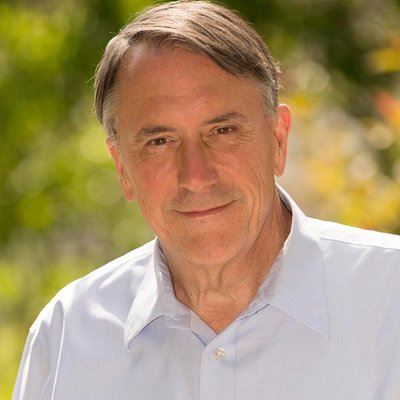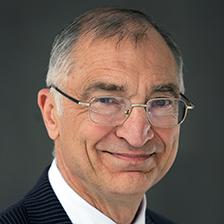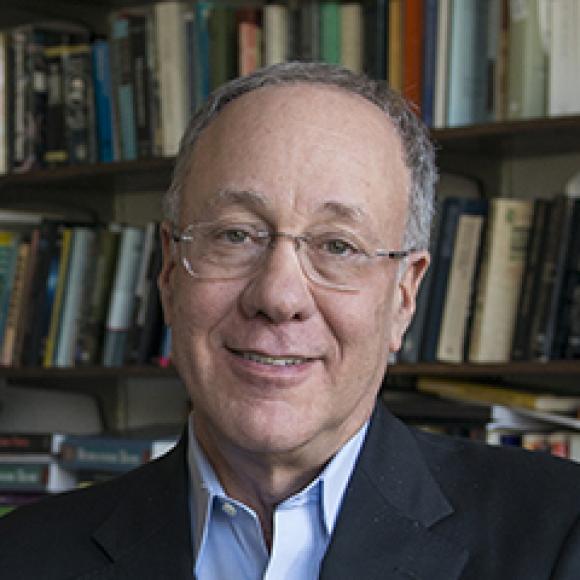- HOME
- Update on Ukraine
.jpg)
Thanks to all who attended our ClassACT HR73 Forum Update on Ukraine: Issues and Analysis on November 13, 2023.
ClassACT HR73 has compiled the video below of the forum Update on Ukraine: Issues and Analysis as well as forum resources, panelist and ClassACT Calls to action, and a summary of the discussion below.
CALL TO ACTION
- Share this a list of reasons, based on the panelists' remarks, for why the US's decision to continue to support Ukraine is economically, militarily, and diplomatically strategic.
Timothy Snyder, the great historian of modern Eastern Europe and the Richard E Levin professor at Yale University, said at the end of last year:
“Americans (and many others) owe Ukrainians a huge debt of gratitude for their resistance to Russian aggression. For some mixture of reasons, we have difficulty acknowledging this. To do so, we have to find the words. Seven that might help are: security, freedom, democracy, courage, pluralism, perseverance, and generosity.”
Moderator Bill Kristol ’73, a widely respected analyst of global affairs and founding director of Defending Democracy Together, led a discussion on the current state of the war in Ukraine, the stakes for the international security system as well as for US global leadership, and the urgent need for increased funds for weapons and training for Ukrainian troops. Joining him was an eminent panel that included Nobel Prize winning economist Roger Myerson '73; former U.S. Ambassador to Croatia Peter Galbraith '73; and international security expert and retired Marine Colonel Mark Cancian '73.
“This is the largest war in Europe in eighty years,” said Bill Kristol. “There are tactical and strategic ups and downs. But in terms of the big picture, Putin invading a neighbor and attempting to conquer it and destroy its people as an autonomous people in Europe, on the border of six NATO countries, is a pretty astonishing thing to happen.”
Since Russian forces swept into Ukraine in February 2222, the Ukrainians have amazed the world with the skill and resolve their army and their citizens have demonstrated in resisting Vladimir Putin’s forces. The Ukrainian troops have gained back half of the ground Russia seized when it invaded Eastern Ukraine in 2014, said Mark Cancian. “The Ukrainians don’t have a navy anymore, but they have been ingenious at striking the Russian navy,” said Cancian. “They have pushed it off shore” by using the long-range missiles provided by the United States and other NATO allies, he added.
Despite Ukrainians’ early successes on land, the counter-offense they launched in June faltered when it met the defenses Russian troops had built up for six months in Eastern Ukraine. The result is a stalemate. “Both sides are exhausted,” said Cancian, who expects both armies to refortify for offensives in the spring. He compared the conflict to World War I’s Battle of Verdun because of the reliance on trench warfare and unguided artillery shells. The volume of those shells as well as of drones, long-range missiles and other weaponry matters enormously in terms of the outcome, he added.
“Each side is looking for a sign that the other side will crack,” said Roger Myerson. Underscoring the necessity of Congress approving more aid to Ukraine, Myerson pointed to how little the money sent to Ukraine in the last year figures into the overall GDP of the United States. He estimated the total at roughly $75 billion, with $45 billion for military assistance and $30 billion for economic and financial aid to the Ukrainian government. That amounts to only about 0.3 percent of the US GDP, he added.
“This is a good deal by the standards of how we judge defense spending. This is Ukraine’s fight. We are not committing our soldiers. We are not committing fellow Americans’ lives,” he said.
Myerson applauded the Ukrainian soldiers, civilians and government officials who persevere amid the devastation left by Russian bombs. “The Ukrainians are exhausted. They are hurting. But their determination is absolutely firm.”
Part of the reason for Ukrainian resoluteness is the decentralization reforms put in place after 2014. Allowing a substantial fraction of income tax revenues to flow to municipalities, the reformers created local governments whose elected mayors Myerson described as one of Ukraine’s “secret weapons” in the current conflict. For the United States, that system has resulted in a partnership with a government of citizen patriots who fight for their own objectives, in contrast to previous US wars in Afghanistan and Iraq, according to Peter Galbraith.
“In Ukraine we are supporting the Ukrainians to accomplish their own objectives,” he added.
Along with optimism about the commitment of Ukrainians to defend their freedom, the panelists expressed concern about what a Russian victory might mean. The possibility of that outcome should not be dismissed, especially if aid to Ukraine were cut off by a Republican House or by a victorious Donald Trump in 2024. “People are a little too confident that the arc of history bends toward justice,” Kristol cautioned, pointing to the string of military successes in Georgia, Chechnya and Syria that Putin enjoyed before his incursion into Ukraine. “If Putin succeeds in the conquest of a UN member, it will stimulate the desire of other nations to get nuclear weapons.”
Another dire consequence of a Putin victory would be the huge diminishment of US leadership in a troubled world, Galbraith said. The conquest of Ukraine and the destruction of its young democracy would make it more likely that Russia would seek to replicate that success in the Baltic states. China might be more inclined to risk an invasion of Taiwan, the panelists said.
“What is at stake is the entire international system since 1945,” said Galbraith, pointing to the multilateral consensus that once a nation becomes a member of the United Nations, it does not have the right to invade another member’s territory. “If Russia gets away with it, it opens the door to others.”
--Jacki Swearingen '73
We have created 2 videos from this conversation—one of the whole event, and a teaser. They are all available by clicking on the playlist in the YouTube video screen below. The playlist is very hard to see! You will find it along the top of the screen just to the right of the title of the forum. It looks like this ≡.
Click on the ≡ button. That will open a drop down menu. You can then scroll down the menu and choose individual videos to play.
OUR MODERATOR AND PANELISTS
MODERATOR BILL KRISTOL '73
 William Kristol is a founding director of Defending Democracy Together, an educational and advocacy organization dedicated to defending America’s liberal democratic norms, principles, and institutions. Kristol has long been recognized as a leading participant in and analyst of American politics and has helped shape the national debate on issues ranging from American foreign policy to the meaning of American conservatism. Kristol was a founder of the Weekly Standard in 1995 and edited the influential magazine for over two decades. Before starting the Weekly Standard, Kristol led the Project for the Republican Future, where he helped developed the strategy that produced the 1994 Republican congressional victory. Before that, Mr. Kristol served in senior positions in the Ronald Reagan and George H.W. Bush Administrations. Before coming to Washington, Mr. Kristol taught politics at the University of Pennsylvania and Harvard University. He received his undergraduate degree and his Ph.D. from Harvard University.
William Kristol is a founding director of Defending Democracy Together, an educational and advocacy organization dedicated to defending America’s liberal democratic norms, principles, and institutions. Kristol has long been recognized as a leading participant in and analyst of American politics and has helped shape the national debate on issues ranging from American foreign policy to the meaning of American conservatism. Kristol was a founder of the Weekly Standard in 1995 and edited the influential magazine for over two decades. Before starting the Weekly Standard, Kristol led the Project for the Republican Future, where he helped developed the strategy that produced the 1994 Republican congressional victory. Before that, Mr. Kristol served in senior positions in the Ronald Reagan and George H.W. Bush Administrations. Before coming to Washington, Mr. Kristol taught politics at the University of Pennsylvania and Harvard University. He received his undergraduate degree and his Ph.D. from Harvard University.
CALL TO ACTION
Republicans should call their Republican members of Congress to get them to commit to the United States spending more funds on the war in Ukraine.
PETER GALBRAITH '73
 Ambassador Peter W. Galbraith is an author, academic, commentator, politician, policy advisor, and former United States diplomat. From 1993 to 1998, he served as the first U.S. Ambassador to Croatia, where he was co-mediator of the 1995 Erdut Agreement that ended the Croatian War of Independence. He was a cabinet member in East Timor’s first transitional government, successfully negotiating the Timor Sea Treaty. In 2009, Ambassador Galbraith was an Assistant Secretary General of the United Nations serving as Deputy Special Representative for Afghanistan. Ambassador Galbraith served two terms as a Vermont State Senator from Windham County from 2011 to 2015, and was a candidate for Governor of Vermont in 2016. He is the author of two critically acclaimed books on the Iraq War, including the bestselling The End of Iraq: How American Incompetence Created a War Without End. Ambassador Galbraith argues that Iraq has broken up into three parts, allowing for Kurdistan’s independence. In the 1980s, Galbraith uncovered the beginnings of the Anfal campaign against the Iraqi Kurds and, in 1988, documented the use of chemical weapons, leading the US Senate to pass comprehensive sanctions legislation (“The Prevention of Genocide Act of 1988”) authored by Galbraith. He was in Kurdistan during the 1991 uprising and his reports–including video footage of the uprising’s collapse – contributed to the US decision to create a safe area. Beginning in 2003, Ambassador .Galbraith was an informal advisor to the Kurdistan Regional Government in northern Iraq, supporting the Kurdistan delegation in the drafting process of the 2005 Iraqi Constitution. He is on the Board of Directors of the Center for Arms Control and Non-Proliferation, the research arm of the Council for a Livable World.
Ambassador Peter W. Galbraith is an author, academic, commentator, politician, policy advisor, and former United States diplomat. From 1993 to 1998, he served as the first U.S. Ambassador to Croatia, where he was co-mediator of the 1995 Erdut Agreement that ended the Croatian War of Independence. He was a cabinet member in East Timor’s first transitional government, successfully negotiating the Timor Sea Treaty. In 2009, Ambassador Galbraith was an Assistant Secretary General of the United Nations serving as Deputy Special Representative for Afghanistan. Ambassador Galbraith served two terms as a Vermont State Senator from Windham County from 2011 to 2015, and was a candidate for Governor of Vermont in 2016. He is the author of two critically acclaimed books on the Iraq War, including the bestselling The End of Iraq: How American Incompetence Created a War Without End. Ambassador Galbraith argues that Iraq has broken up into three parts, allowing for Kurdistan’s independence. In the 1980s, Galbraith uncovered the beginnings of the Anfal campaign against the Iraqi Kurds and, in 1988, documented the use of chemical weapons, leading the US Senate to pass comprehensive sanctions legislation (“The Prevention of Genocide Act of 1988”) authored by Galbraith. He was in Kurdistan during the 1991 uprising and his reports–including video footage of the uprising’s collapse – contributed to the US decision to create a safe area. Beginning in 2003, Ambassador .Galbraith was an informal advisor to the Kurdistan Regional Government in northern Iraq, supporting the Kurdistan delegation in the drafting process of the 2005 Iraqi Constitution. He is on the Board of Directors of the Center for Arms Control and Non-Proliferation, the research arm of the Council for a Livable World.
Ambassador Galbraith was an assistant professor of International Relations and Economics at Windham College in Putney, Vermont, from 1975 to 1978. Later, he was Professor of National Security Strategy at the National War College in 1999 and between 2001 and 2003. In addition to his books, Ambassador Galbraith has written extensively for a range of publications including The New York Review of Books, The New York Times, The Washington Post, and the Guardian.
Ambassador Galbraith earned a B.A. degree from Harvard College, an M.A. from Oxford University, and a J.D. from Georgetown University Law Center.
CALL TO ACTION
Get in touch with members of Congress, both those representing you and those whom you might know, and urge that they support the President’s request for aid to Ukraine.MARK CANCIAN'73
 Mark Cancian (Colonel, USMCR, ret.) is a senior adviser with the CSIS International Security Program. He joined CSIS in April 2015 from the Office of Management and Budget, where he spent more than seven years as chief of the Force Structure and Investment Division, working on issues such as Department of Defense budget strategy, war funding, and procurement programs, as well as nuclear weapons development and nonproliferation activities in the Department of Energy. Previously, he worked on force structure and acquisition issues in the Office of the Secretary of Defense and ran research and executive programs at Harvard University’s Kennedy School of Government. In the military, Colonel Cancian spent over three decades in the U.S. Marine Corps, active and reserve, serving as an infantry, artillery, and civil affairs officer and on overseas tours in Vietnam, Desert Storm, and Iraq (twice). Since 2000, he has been an adjunct faculty member at the Johns Hopkins School of Advanced International Studies, where he teaches a course on the connection between policy and analysis. A prolific author, he has published over 40 articles on military operations, acquisition, budgets, and strategy and received numerous writing awards. He graduated with high honors (magna cum laude) from Harvard College and with highest honors (Baker scholar) from Harvard Business School.
Mark Cancian (Colonel, USMCR, ret.) is a senior adviser with the CSIS International Security Program. He joined CSIS in April 2015 from the Office of Management and Budget, where he spent more than seven years as chief of the Force Structure and Investment Division, working on issues such as Department of Defense budget strategy, war funding, and procurement programs, as well as nuclear weapons development and nonproliferation activities in the Department of Energy. Previously, he worked on force structure and acquisition issues in the Office of the Secretary of Defense and ran research and executive programs at Harvard University’s Kennedy School of Government. In the military, Colonel Cancian spent over three decades in the U.S. Marine Corps, active and reserve, serving as an infantry, artillery, and civil affairs officer and on overseas tours in Vietnam, Desert Storm, and Iraq (twice). Since 2000, he has been an adjunct faculty member at the Johns Hopkins School of Advanced International Studies, where he teaches a course on the connection between policy and analysis. A prolific author, he has published over 40 articles on military operations, acquisition, budgets, and strategy and received numerous writing awards. He graduated with high honors (magna cum laude) from Harvard College and with highest honors (Baker scholar) from Harvard Business School.
CALL TO ACTION
US spending on Ukraine is 8% of what we spent on defense during this last 18 month period, and less than what we spent in 1 year in Iraq and Afghanistan. Also, 60% of what we spend is spent in the United States, and no American lives are at stake in this war. It is important to be aware of these numbers.ROGER MYERSON '73
 Roger Myerson is the David L. Pearson Distinguished Service Professor of Global Conflict Studies in the Harris School of Public Policy and the Griffin Department of Economics at the University of Chicago. He previously taught at Northwestern University from 1976 to 2000, after doing undergraduate and doctoral study at Harvard. He has written two books: a mathematical textbook on game theory, and an applied book on probability models and risk analysis in spreadsheets. He has made fundamental contributions to information economics and mechanism design theory, which analyzes rules for coordinating economic agents efficiently when they have different information and difficulty trusting each other. He has also used game-theoretic analysis to study political systems, with articles on comparative electoral systems, on strategic deterrence, on moral hazard and leadership in the foundations of the state, and on the importance of local politics in democratic state building. In 2007, he was awarded the Nobel Memorial Prize in Economic Sciences.
Roger Myerson is the David L. Pearson Distinguished Service Professor of Global Conflict Studies in the Harris School of Public Policy and the Griffin Department of Economics at the University of Chicago. He previously taught at Northwestern University from 1976 to 2000, after doing undergraduate and doctoral study at Harvard. He has written two books: a mathematical textbook on game theory, and an applied book on probability models and risk analysis in spreadsheets. He has made fundamental contributions to information economics and mechanism design theory, which analyzes rules for coordinating economic agents efficiently when they have different information and difficulty trusting each other. He has also used game-theoretic analysis to study political systems, with articles on comparative electoral systems, on strategic deterrence, on moral hazard and leadership in the foundations of the state, and on the importance of local politics in democratic state building. In 2007, he was awarded the Nobel Memorial Prize in Economic Sciences.
CALL TO ACTION
Support the KSE Foundation at the Kiev School of Economics, which, since the beginning of the large-scale Russian invasion, the KSE Foundation has been raising funds for charitable assistance for Ukrainians. Before the full-scale invasion, they raised money for education to change lives, and now they raise money to save lives.CLASSACT HR73'S CALL TO ACTION



